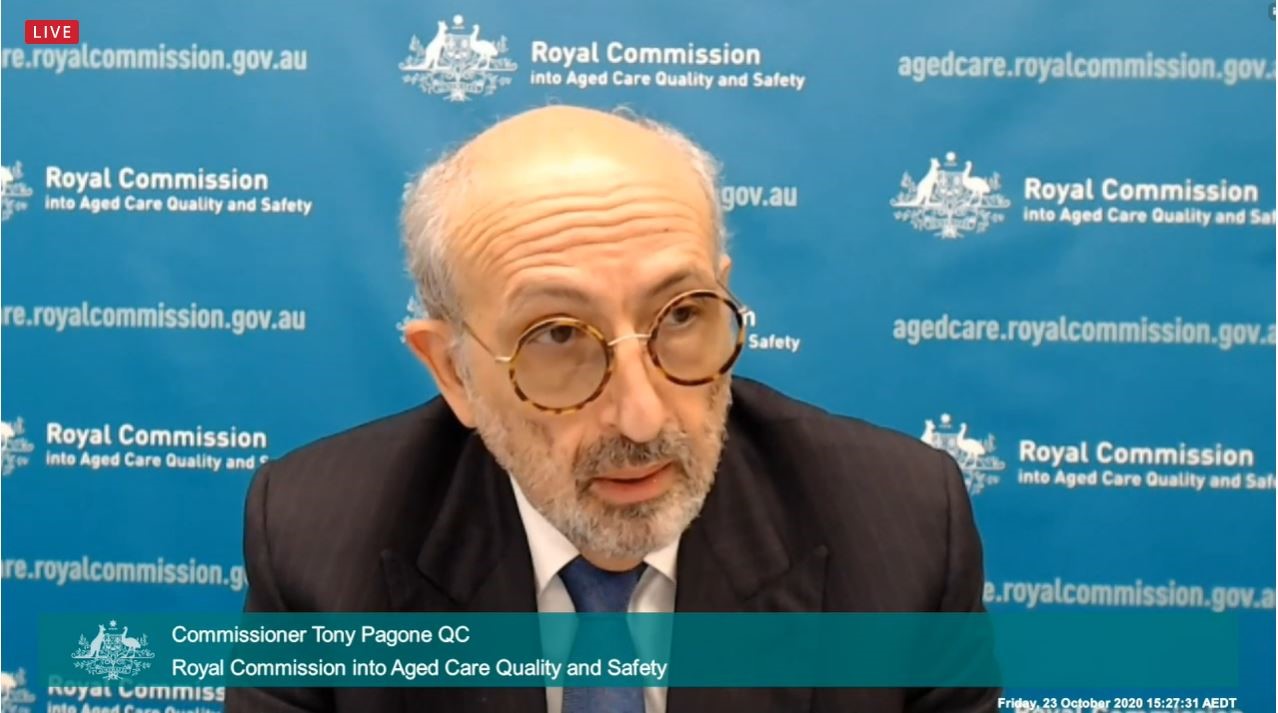This week marks one year since the Royal Commission into Aged Care Quality and Safety concluded its final hearing. In The Daily COMMISSION newsletter, I wrote that the formal proceedings left viewers with more questions than answers – and it could be argued that many of those questions remain unanswered today.
At the final day of hearings, Commissioner Lynelle Briggs AO said she was confident that the Final Report would change the aged care landscape, and called on boards, providers, the Government and the wider community to champion its reforms.
“We need ambition and enthusiasm within the aged care sector to turn this system around. Let’s see some stars in transformation who champion those kinds of changes we recommend. And we need governments to move forward collectively, to fund and make sure that the Australian aged care system is one that we can be all justifiably proud of and have confidence in.”
“Good people” can be the biggest problem
 But there was also a warning from Commissioner Tony Pagone QC that real change is not always easy to achieve.
But there was also a warning from Commissioner Tony Pagone QC that real change is not always easy to achieve.
“We have seen many failures and many shortfalls. But the ones that are most difficult to overcome are the failures when the things are working as you would expect them to be working, as Mr Gray said a few moments ago. Good people, well intentioned, doing the best they can cause the biggest problem to fix the system without a complete overhaul.”
The Commissioner concluded with a quote from a book The Leopard:
“We’ve all heard the well-known expression about the more things change, the more things remain the same. In the book The Leopard, the twist is this: If we want things to stay as they are things will have to change. What we don’t want this Commission to do is to bring about changes for things to remain the same.”
Few changes so far from Royal Commission reforms
Eight months on from the Final Report and the Government’s response, and it would seem the Commissioner’s fears are being realised in part.
The split between the Commissioners on the governance of the sector has seen the Government scrap the idea of an independent Aged Care Commission.
Recommendations for fairer co-contributions – and a user pays system – were also ignored.
The Government did accept the Senior Counsel’s “ambitious” five-year program to transform the aged care system starting from mid-2021 – but so far, the progress has been slow and consultation with the sector minimal.
Senior execs exiting the sector
Some initiatives have been rolled out on time, like the extra $10 for the Basic Daily Fee proposed by StewartBrown, but there is also a backlog of Government tenders for key measures – such as governance training for boards.
Detail around other measures – including the single In-Home Care Program – is yet to be revealed.
Meanwhile, the system continues to struggle financially – see the story on StewartBrown’s 2021 Finance Forum.
Commissioner Briggs wanted the sector to have “ambition and enthusiasm” – but COVID-19, workforce challenges and a steady stream of reforms in recent years have weighed on operators.
The turnover in executive talent – which we forecast in The Daily COMMISSION to be two-thirds of the sector within three years – is steadily growing.
New ‘unified voice’ can drive change
But there are also ‘green shoots’.
As the Royal Commission noted, some providers managed to make a return.
With the increased focus on compliance, the removal of the Aged Care Approvals Round (ACAR) and the introduction of star ratings, the market will become increasingly competitive, allowing those operators that have the cash and executive talent to grow their market share and revenue.
The sector has also been making moves toward a single united voice – with responses to KPMG’s survey on sector representation now extended to tomorrow night.
A single representative body could help the sector to sharpen its messages to Government and the community.
With the need for a ‘users pays system’ still evident, there is time for meaningful change that ensures the status quo doesn’t stay the same.






